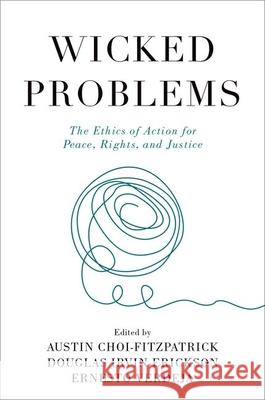Wicked Problems: The Ethics of Action for Peace, Rights, and Justice » książka
topmenu
Wicked Problems: The Ethics of Action for Peace, Rights, and Justice
ISBN-13: 9780197632819 / Angielski / Twarda / 2022 / 288 str.
Kategorie:
Kategorie BISAC:
Wydawca:
Oxford University Press, USA
Język:
Angielski
ISBN-13:
9780197632819
Rok wydania:
2022
Ilość stron:
288
Oprawa:
Twarda
Wolumenów:
01
Dodatkowe informacje:
Bibliografia











